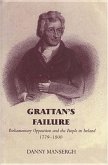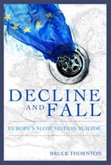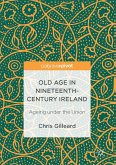Today Ireland's population is rising, immigration outpaces emigration, most families have two or at most three children, and full-time farmers are in steady decline. But the opposite was true for more than a century, from the great famine of the 1840s until the 1960s. Between 1922 and 1966--most of the first fifty years after independence--the population of Ireland was falling, in the 1950s as rapidly as in the 1880s. Mary Daly's "The Slow Failure examines not just the reasons for the decline, but the responses to it by politicians, academics, journalists, churchmen, and others who publicly agonized over their nation's "slow failure." Eager to reverse population decline but fearful that economic development would undermine Irish national identity, they fashioned statistical evidence to support ultimately fruitless policies to encourage large, rural farm families. Focusing on both Irish government and society, Daly places Ireland's population history in the mainstream history of independent Ireland. Daly's research reveals how pastoral visions of an ideal Ireland made it virtually impossible to reverse the fall in population. Promoting large families, for example, contributed to late marriages, actually slowing population growth further. The crucial issue of emigration failed to attract serious government attention except during World War II; successive Irish governments refused to provide welfare services for emigrants, leaving that role to the Catholic Church. Daly takes these and other elements of an often-sad story, weaving them into essential reading for understanding modern Irish history
Bitte wählen Sie Ihr Anliegen aus.
Rechnungen
Retourenschein anfordern
Bestellstatus
Storno








![The Malthusian. [vol.1, No.1 Is Of The 2nd Ed.]. [continued As] The New Generation. [continued As] The Malthusian. N.s The Malthusian. [vol.1, No.1 Is Of The 2nd Ed.]. [continued As] The New Generation. [continued As] The Malthusian. N.s](https://bilder.buecher.de/produkte/68/68936/68936225m.jpg)